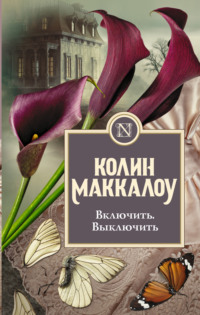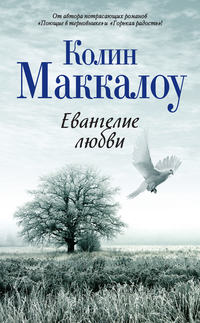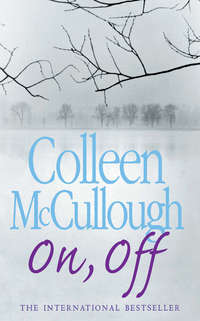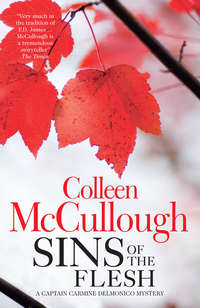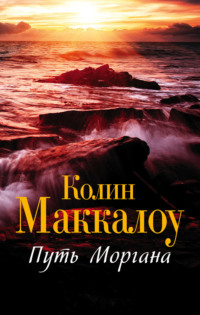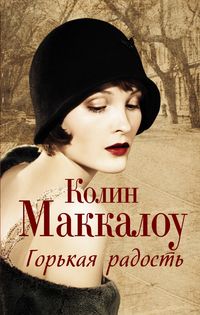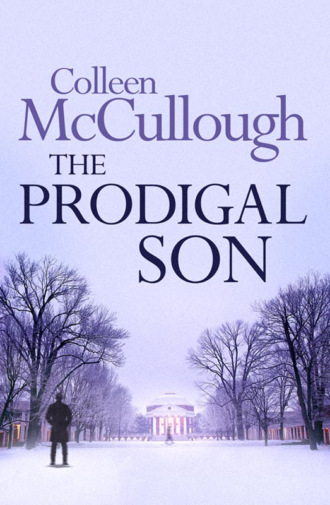
Полная версия
The Prodigal Son
She obeyed, pushing Max away from the phone.
“By the time the road cop picks the sample up, Dad, I’ll have drawn a schematic of tetrodotoxin’s molecular structure,” Millie said to Patrick a moment later. “I think Jim’s crazy to suspect it, but what if he’s right? What if whoever stole the stuff is selling it as the undetectable poison? That’s why you have to assay the victim’s blood a.s.a.p.—more chance of a last metabolite or two. Gas chromatography first, then the mass spectrometer. Humor Jim, Dad, please! I mean, it can’t possibly be tetrodotoxin, these people have no connection to me.”
“I’ll send Gus Fennell. I have to recuse myself, Millie,” said her father’s voice, “and I’m guessing Carmine will too. It will probably be Abe Goldberg. Oh, shit!”
“Tell me about it.” She hung up.
Max Tunbull and Al Markoff were arguing.
“You’ve got it all wrong, Al! John’s mom died at about the same age, and John’s her spitting image—it runs in that family!” Max said.
“Crap!” said the doughty doctor. “Bitch all you like, Max, I’m not convinced John died from natural causes. The time span between onset of symptoms and death was nearly lightning. Pity I was too busy to time it.”
“I timed it,” Jim Hunter said. “From his saying the word ‘hot’ to his death, eleven minutes. You’re absolutely right, Al, it’s suspicious. John was a healthy guy.”
Whereupon Davina, eyes distended, uttered a shriek, went rigid, and fell to the floor. Uda knelt beside her.
“I put Miss Vina bed,” she said. “Mr. Max, you phone her doctor now. She get needle.”
“No way,” said Muse Markoff. “The cops will want to see her, Uda—unsedated.”
“Thiss not Iron Curtain!” Uda snarled on yellow teeth. “Big function tomorrow night for Miss Davina, she be ready!”
And, thought Millie, remembering tomorrow night, Davina would go through hell to be ready for it. No matter what the cops might want, Davina’s doctor was going to knock her out until late tomorrow afternoon. “Or,” said Millie to Jim, “I’m a monkey’s uncle.”
He grinned, brushed her cheek with one finger. “That, my love, you are not.” His eyes followed the servant, supporting her mistress to the stairs. “To get to Davina, first get past Uda. If I’ve learned nothing else, I’ve learned that.”
Lieutenant Abe Goldberg appeared a few minutes after the motorcycle cop picked up the test tubes of blood for the M.E.; with him came Dr. Gus Fennell, Deputy Medical Examiner, and his own pair of detectives, Sergeants Liam Connor and Tony Cerutti.
“What do you really think, Millie?” Abe asked, his fair and freckled countenance looking unusually grim. Millie Hunter’s marital history was well known, and she was loved.
“John’s symptoms sound very supicious, but the rapidity of his death suggests injection rather than ingestion. If he’d eaten it, especially given the good meal he consumed, I would have expected considerable vomiting and fecal purging. And it wouldn’t have come on so fast. Tell whoever does the autopsy to look for a puncture mark, and tell Paul the dose might have been as small as a half of one milligram. John was about six feet, but he wouldn’t have weighed more than one-sixty.” Millie kept her voice low, glad Davina Tunbull wasn’t watching. Hysterics, my eye!
“Now’s not the time or place, Dr. Hunter, but I gather you were aware your wife had tetrodotoxin at her laboratory?” Abe asked Jim, his voice courteous.
“Yes, she mentioned it.”
“Were you aware how dangerous it is?”
“In all honesty, no. I’m not a neurochemist, and I would not have recognized it as a toxin if I’d encountered it, at least before I determined its molecular structure. That always gives a lot of things away. But it’s only tonight, after watching John Tunbull die, that I understand how lethal it is, particularly for such a tiny dose. I mean, it’s lethal at the kind of dose you might give yourself by sheer accident!”
“Who suspected the death, Dr. Jim?”
“Dr. Markoff. Said flatly it was a coroner’s case and the police had to be called in. He’s impressive.”
“Did you think the death suspicious?”
Jim considered that carefully, then shook his head. “No, I guess I just thought it was a heart attack, or maybe a pulmonary embolus—I’m not totally medically ignorant, but I’m not a physician either. Except for his age, John’s death looked pretty routine to me. Millie wasn’t so sure because someone stole her tetrodotoxin—it’s absolutely lethal stuff, Lieutenant.”
“Did you know about the theft, Doctor?”
“Sure I did—Millie and I tell each other everything. But I never thought of connecting it to John—I have no idea what the symptoms are, except I guess I thought they’d be the usual symptoms of poisoning—vomiting, purging, convulsions. None of which he displayed. The only poisons I know behave the way John behaved are all gases, and since no one else felt a sign of what John went through, it can’t have been a gas. Tetrodotoxin isn’t a gas either. It’s a liquid that can be reduced to a powder, or vice versa.” Jim gave a half-hearted grin. “By which, Lieutenant, you know that Millie and I do discuss things.”
Abe’s large grey eyes had narrowed; so this was the black half of a famous alliance! Wherever he might have met Jim Hunter, under what circumstances, his eyes betrayed enormous intelligence, innate gentleness, a huge capacity to ponder. Carmine liked him: now Abe saw why.
“May my wife and I find a quiet, out of the way corner, Lieutenant?” Jim asked.
“Sure, Doctors. Just don’t leave the house.”
Abe kept his questions to the dinner guests brief and to the point: just events at the dinner, in the den, trips to the toilets, John’s sudden illness. The only one he suspected of real duplicity was Mrs. Davina Tunbull, who had retreated into hysterics Millie whispered were fake. They were always bad news, those women, even though mostly they had nothing to do with the commission of the crime. They muddied the waters simply to be noticed, treated specially, fussed over. And there was no way he was going to get to see her or the servant, Uda, tonight.
With their details written down in his notebook and John Tunbull’s body gone to the morgue an hour since, Abe wound up his investigation shortly after midnight and let people go home.
“Though that’s really only us,” said Millie, wrapped against the cold as she and Abe stood on the crunchy doorstep. “The rest are close enough to walk home. Oh, dear, there’s Muse vomiting in the garden. I daresay she does have a sensitive liver after all. Her husband’s very kind to her, I see.”
“Where do you live, Millie?”
“On State Street. Caterby is the next intersection.”
Jim drove up in their old Chevy clunker; Abe opened the passenger door to let Millie slide in, then watched them drive away, the white fog issuing from their tail pipe telling him that the temperature had dropped below 28°F. This was a cold winter.
Those two unfortunate people, Abe thought, mind on the Doctors Hunter. Still dirt-poor, to be living out there on State. Paying back the last of their student loans, no doubt. Just as well Dr. Jim is the size of a small mountain. If he were a ninety-pound weakling, that neighborhood would be hell for a mixed-race couple, full of poor whites and an occasional neo-Nazi.
SATURDAY, JANUARY 4, 1969
Desdemona took the tuxedo by its shoulders and shook it out.
“There, Millie! It will not only hold throughout tonight’s boring festivities, it will actually feel reasonably comfy.”
Beaming in pleasure, Millie hugged as much of Desdemona as she could reach. “Thank you, thank you!” she cried. “Aunt Emilia said you could do anything with a needle, but I hated invading your privacy, the busy mother. However, unless Jim’s book is a big seller, we can’t possibly afford a tailor-made dinner suit for him.”
“Looks to me as if he’s going to need one in the years to come. When you can afford it, ask Abe Goldberg where to go. His family has more tailors than detectives. Carmine can’t buy his suits off the rack either—clothing manufacturers don’t cater for men who are massive in the shoulders and chest, but narrow in the waist.” Desdemona turned her sewing machine upside down and watched it disappear into its cradle. “There! Come and have a cuppa with me—tea or coffee, your choice.” A hand reached down to scoop Alex out of his daytime crib. “Yes, sweet bugger-lugs, you’ve been very patient,” she said, balancing him on her left hip.
“You manage so effortlessly,” Millie said, watching Desdemona make a pot of tea and shake chocolate chip cookies on to a plate, all holding Alex.
“Oh, Alex is easy. It’s the first one causes the headaches,” Desdemona said, settling into the breakfast booth—a new addition to the kitchen—with Alex on her knee. She dunked the edge of a cookie in her rather milky tea and gave it to Alex to suck. “I would have been horrified at the thought of giving a sugary cookie to a nine-month-old baby when I had Julian, but now? Anything that shuts them up or keeps them happy is my motto.”
Such a beautiful child! Millie was thinking as she watched enviously. I want to be her—I’m sick of laboratory experiments! I want a delicious little baby Hunter, some shade of brown, with weirdly colored eyes and a brain as big as his or her Daddy’s …
“Where are you?” Desdemona asked, snapping her fingers.
“Putting myself in your place. Wanting to be a mother.”
“It’s not always beer and skittles, Millie,” Desdemona said wryly. “I’m still recovering from a post-partum depression.”
“But you’re okay, right?”
“Yes, thanks to an understanding husband.”
In came Julian, toting a huge orange cat that was giving him all its considerable weight. Desdemona handed a cookie down.
“Ta, Mommy.”
“Julian, you’re developing your muscles splendidly, but how is Winston going to get any exercise when you carry him everywhere? Put him down and make him walk.”
Down went the cat, which began to wash itself.
“See? That’s why I carry him, Mommy. Every time I put him down, he washes himself.”
“To get rid of your smell, Julian. If he is to sniff out rats and mice, he can’t have Julian all over him.”
“Okay, I see that.” Julian wriggled up beside his mother and looked at Millie with topaz eyes. “Hi,” he said.
“Hi. I’m Millie.”
Out of the corner of her eye Millie saw an ugly pit bull dog join the cat; they ambled together toward the back foyer.
“You can be nice to Julian,” Desdemona said gravely. “He’s through his most annoying phase, at least for the time being.”
“What was your most annoying phase, Julian?” Millie asked.
“Daddy said, I was a defense attorney.” Julian reached for his mother’s tea cup and drank its entire contents thirstily.
“You let him drink tea?” Millie asked, appalled.
“Well, drinking gallons of it from infancy didn’t stop us Brits from ruling most of the world,” said Desdemona, laughing. “I put extra milk in it if Julian drinks it, but tea’s good value.” She gazed at Millie sternly. “Come! Talk to me about you and Jim.”
“That does it!” said Julian loudly, sliding down from the seat with a flick at Alex’s cheek that Millie supposed was love. “I have to supervise Private Frankie and Corporal Winston. See ya!” And off he went.
“His speech is dreadful,” his mother said. “Try though I do to limit them, he’s full of Americanisms.”
“He lives in America, Desdemona.”
She sighed. “The quintessential gun culture. But let’s not talk about my sons. Who interviewed you last night?”
“Abe. Thank God for a friendly face.”
“Don’t say that too loudly. Carmine doesn’t want an outside agency invited in to investigate because of propinquity.” She chuckled. “Such a peculiar word to use!”
“Not much chance of that,” said Millie. “I called Abe Lieutenant Goldberg and was as stiff as a poker. It was dreadful, Desdemona! Jim was right next to John when he took ill.”
“Someone had to be next to him,” Desdemona comforted, and poured more tea around the encumbrance of Alex, still sucking at his cookie. “I gather that further questioning is to wait until tomorrow—maybe Monday for you and Jim.”
“I must say that Abe took Davina’s absence calmly. Even after her doctor told him she’d have to wait until Sunday for questions, he just looked long-suffering.”
Desdemona grinned. “They encounter women like her all the time, Millie. All she’s doing is postponing what will be a nastier interview because she did postpone it. And enough of all that! Have you a nice frock for tonight?”
Millie’s face clouded. “Unfortunately, no. Kate let me pick through her enormous wardrobe, but tonight is a long dress that has to hold up academic robes, so I’m back to my graduation black dress. Men have their ties to hook robes and hoods around, but women don’t. You and Carmine are coming tonight, I hope?”
“We’ll be there, Millie,” said Desdemona, smiling.
“You said tonight was an annoying inconvenience, Mommy,” said Julian, stomping in like a soldier back from the wars.
“He’s turned into a parrot,” his mother said. “I absolutely despair of sensible conversation with him.”
“Why do you absolutely despair of sensible conversation with me, Mommy? I know lots of big words.”
“You know them like a parrot.”
“Pooh, nonsense!” said Julian.
“Oh, lord, I said that weeks ago, and he won’t forget it!”
Alex opened his mouth and grinned, revealing teeth.
Ivy Hall was one of the oldest buildings at Chubb University, itself nearly three hundred years old, and Ivy Hall had been preserved with loving care. Built of red brick in 1725, it had been the original classroom, though for the last hundred years it had been used only for important banquets. Until Mawson MacIntosh, fondly known as M.M., had taken over as President of Chubb, its accommodation had been on the spartan side—scarred wooden benches and refectory tables. With his unparalleled genius for fund raising, M.M. had persuaded the Wicken family to donate a large sum to refurnish Ivy Hall; it now had proper dining tables of the finest mahogany, with upholstered mahogany chairs.
Its walls were hung with priceless Flemish tapestries between floor-to-ceiling Georgian windows, with space for long paintings of landscapes here and there. The oak floor had been treated, and the dais designed to take a high table given a much needed spit and polish.
The official reason for giving this particular banquet was to mark the retirement of the present Head Scholar of the Chubb University Press, and the assumption of the title Head Scholar by his successor. How the man responsible for the administration of C.U.P. had come to be known as its Head Scholar was lost in the mists of time for most: in actual fact it went back to the founding of C.U.P. in 1819, and was supposed to reflect Chubb University’s charter principles. This night, however, also marked another fact about C.U.P.: it was 150 years old, and celebrating its sesquicentenary. For that reason, the heavy place mats bore a beautifully chased design based on the number 150, dreamed up by C.U.P.’s associated design firm, Imaginexa; it was therefore the brain child of Davina Tunbull, who had gone further and put a few festive gold-and-silver touches on the hall that not the most conservative of academics could have damned as in bad taste.
Four tables had been laid, decorated with gold-and-silver 150s cunningly wrought out of metal to form something like epergnes. One, the high table, sat upon the raised dais at the end of the hall, and because of its orientation, the three tables down on the floor of the hall were also laid from side to side of the room, which gave the whole assemblage a discriminatory feel, as it went high table for the major dignitaries, then the Chubb University table, followed by the Chubb University Press table, and, farthest from the high table and closest to the food ingress and egress, the table of Town dignitaries.
Each of the four tables held nine couples, which meant that a total of seventy-two people would sit down to what would be a function most didn’t want to attend but couldn’t not; the speeches and the involuntary exposure of many to people they tried to avoid summed up the negative side of being there, while the quality of the food, the fairly comfortable chairs and the chance to catch up with old friends represented the positive side. Tradition demanded that academic robes be worn by all the men but only by those women holding Chubb faculty positions, which added to the torments; police captains like Carmine Delmonico and Fernando Vasquez voted it an utterly wasted evening.
“Whoever planned this setup made a boo-boo,” Commissioner John Silvestri said as he ensconced his still beautiful wife in her chair and sat down next to her. “They put Nate Winthrop on the high table and Doug Thwaites down on the floor—man, they will rue that!”
Carmine, to whom this remark was made, gave his boss a grin. “They need Delia,” he said.
“We could rent her out, a thousand bucks an hour.”
“No, we won’t. M.M. might grab her.”
“M.M. won’t be pleased when he sees he’s gotten Nate but no Doug,” said the District Attorney, Horace Pinnerton. “Yes, Marcia, I’ll see if I can get you an extra cushion. They never cater for shorties,” he said to Fernando Vasquez.
“Or long drinks of water,” Fernando said, nodding at the two metres-plus of Manfred Mayhew, Holloman’s Town Clerk, once a famous basketballer. His wife, of course, was barely five feet tall. Another cushion coming up!
“And for this, Ginny and I have to miss our free night,” said the Fire Chief, Bede Murphy, who didn’t wear a robe.
His wife was giving Liza Mayhew the look of a martyr. “Bede doesn’t fit his tux anymore,” she said, low-voiced, “and my long dresses went out with Norma Shearer. Sometimes I hate Chubb! Academic gowns, tuxes, long dresses—pah!”
“The place mats and decorations are superb,” said Desdemona pacifically. “Millie told me that Davina Tunbull designed them. Is that her on the next table up?”
About to sit down, Carmine turned to tally the C.U.P. table. “Your instincts are amazing,” he said. “From Abe’s description of a woman who’d gone to bed in hysterics and wasn’t even on display, that’s her in silver and gold.”
“Well, she’s so beautifully dressed, and matches the decor,” said Desdemona, and gazed down at the table with a sigh. “My back will be giving me gyp at the end of this. Why are dining tables so low, or chairs so high?”
Carmine seated himself, pleased that he was on the correct side of the table to look up the hall. Davina Tunbull was a looker, but what took his eye was the dramatic difference in age between her and her husband. Max looked his sixty years—why hadn’t they begged to be excused tonight? Everybody would have understood. No, she had wanted to come, no matter how Max felt. Dressed in slinky gold and silver panels that left her knobby back bare, she was queening it over the rest of the women at her table—or in the hall, for that matter. Why did women starve themselves to look good in clothes? They resembled greyhounds.
All the Tunbulls had come—Max and Davina, Val and Emily, Ivan and Lily. After Abe’s perceptive reportage, Carmine had the men in his memory now. They represented the printing side of C.U.P., so presumably the others at the table belonged to C.U.P. itself. Interesting! Several of the executives were women; no mistaking who was the professional boss in a relationship, and these women were towing escorts or tame husbands. No equal partnerships here. Three women executives, three men executives.
His eye went to the high table, farthest away, but also the easiest to see, up in the air six feet. Jim and Millie Hunter were seated on it; so were the two senior Parsons, Roger Junior and Henry Junior. Hmm … That was right, then, the Parsons had bludgeoned Chubb into appointing Thomas Tarleton Tinkerman the new C.U.P. Head Scholar. Easy to pick him: his facial expression was reminiscent of Martin Luther having a bad day with his hemorrhoids. Jesus, were they the Parson wives? They could have been sisters to their husbands—the same austere, bony faces—and the same watery blue eyes, he’d be willing to bet if he got close enough to check.
“You’re enjoying this, you ruthless blighter,” Desdemona was whispering. “Grist to your copper’s mill.”
“Yep,” he said amiably, lifted her hand and kissed it, eyes glowing. “None of them can hold a candle to you.”
She blushed. “Flattery will get you permission to massage my back later tonight, otherwise I’ll be a cot case tomorrow.”
“Deal,” he said, and grinned at Patrick and Nessie, down between Horrie Pinnerton and Dave Zuckerman, the head of Social Services. Derek Daiman and his wife, Annabelle, had just come in too; he had gone from Principal of Travis High to Director of Education. It felt good to have a black couple on the Town table—more than Chubb could boast.
“Generous width of seating,” Derek said, sitting opposite Carmine. “If the meat’s tough, I can fly my elbows.”
“Don’t hesitate to put them on the table when they’re not flying,” Carmine said. “This is your first banquet, you and Fernando, but it’s my skeedy-eighth.”
“Will the meat be tough?” Fernando asked anxiously.
“Put it this way, guys: If the meat is tough, then the next banquet will serve roast caterer for the main course. M.M. is a stickler for good food at these functions.” He raised his glass of amontillado. “Cheers! Here’s to many more Chubb banquets.”
“Speaking as a cop, may they all be boring,” Fernando said, and sipped. “Hey, this is good sherry!”
“Chubb is well endowed, gentlemen.”
“Who’s at the first table below the high one?” Derek asked.
“Chubb U. dignitaries. The rest of the Governors—Dean Bob Highman as senior dean—three specimens of Parson in Roger III, Henry III, and he of the loose mouth, Richard Spaight. But don’t feel sorry for Doug Thwaites, he’ll make mincemeat of them all.”
Thomas Tarleton Tinkerman, now Head Scholar of the Chubb University Press, was holding forth to the Parson Brothers while the entire high table listened, some politely, some happily, some incredulously.
“C.U.P. will return to the spirit of its charter,” he was saying, “and leave scientific publishing to those academic institutions with the interest and resources to do it properly. C.U.P.’s niche under my care of the imprimatur will be in those neglected fields whose students may be few, but whose ideas are so vital to Western philosophy that they have shaped it. In our present climate of worship for the technocrat and the machine, no one publishes them anymore. But I will, gentlemen, I will!”
“I’m not sure how the technocrat and the machine fit in, but I take it you dismiss twentieth century philosophy?” Hank Howard asked, wondering if he could be baited.
The haughty face sneered. “Pah! One may as well call Darwin and Copernicus philosophers! The kind medical students read!”
“I think it’s great that medical students read anything not connected to medicine,” Jim Hunter said mildly.
Tinkerman’s face said “You would!” but his mouth said “Not so, Dr. Hunter. Better they should confine themselves to medicine than read metaphysics for monkeys!”
A small, startled silence fell: Tinkerman had sounded too personal, and several of his auditors resolved to deflect him.
“I’ve known medical students who read Augustine, Machiavelli and Federico Garcia Lorca,” said M.M., smiling easily.
“Perhaps they’re a little off the track of this discussion, Tom, but if novelists like Norman Mailer and Philip Roth were offered to you, surely you’d publish them?” Bursar Townsend asked.
“No, I would not! Never!” Tinkerman snapped. “Disgusting, filthy, pornographic trash! The only philosophy they can offer is in the gutter!” His chest heaved, his eyes flashed.
“Ah!” M.M. exclaimed. “Food! Tom, your blood sugar seems a trifle low. We are shamefully neglecting Roger and Henry, not to mention the ladies. My apologies.”


